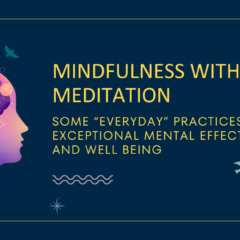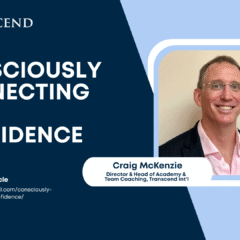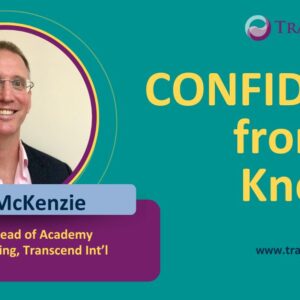Alumni Interview – Phil Smith
Why Transcend?
I met Craig first actually through some of the work that I’m doing with Hong Kong University (HKU). When he and I talked about our interest and what Transcend was doing and what HKU Space was doing, we both thought there was a chance/possibility to develop some kind of collaborative relationship…
Craig and Tony kindly extended the offer to me to do my ICF Accreditation programs with them. So eventually I can work with HKU Space in that regard, but also to help Transcend in their mission to broaden the ICF brand in Hong Kong.
How has your experience been with Transcend so far?
It has been very positive. I would summarize my experience in three words – professional, flexible and opportunities to network.
It’s a very professional organization, both Craig and Tony, the two individuals whom I’ve worked with in a coaching and tutorial capacity. They are both very upstanding guys. They are values-driven people as well as being commercial, and they stand for most of the values that I stand for in terms of coaching and what coaching and other forms of advanced learning and development can bring to individuals.
The second feature of my work with Transcend is the interesting possibility of meeting and working with people who I don’t know, but are interested in some of the same things that I am. So the networking opportunity of doing the programs, the Observed Coaching Practice, etc are useful.
My experience with Transcend has also reminded me that this is a learning journey. Most of the people whom I’m meeting are at a different spot than I am – it’s healthy for me to remember what it’s like to start out as a young, aspiring coach and what I’ve been through sometimes may be interesting to some of the people that I’m working with and vice versa.
I meet people who, even though, are much younger and less experienced than I am; nonetheless they have a lot to offer. I learned a lot of lessons from them as well, so that’s been very good.
The last word to describe my experience is collegial. The environment is flexible; the support has been fantastic and Transcend has been very accommodating. It’s never been difficult to make arrangements… On couple of occasions, unfortunately, I had to change plans last minute. Transcend has been able to accommodate that even in some very last minute cases. So I appreciate that; the flexibility Transcend offers is very helpful.
Why professional coaching?
I chose professional coaching because it is a natural extension of what I’ve been doing my entire career in education, learning and development. I got into coaching back in 1980s as an extension of work that I’ve been doing in career, vocational counseling and coaching executives in the civil service in England.
I’ve been developing my skills, practice, and knowledge in this field all that time. For me it’s been a career path; something I do that I earn my living, but it’s also something that I really enjoy. Guess I’m also one of those lucky people where most mornings (8 or 9 out of 10) I wake up and go to work doing things that I enjoy, and I work with people who are interesting and challenging sometimes.
Why should someone interested in coach training enroll in Transcend’s programs?
There are a couple of obvious answers to that from my point of view.
First, Transcend is well and highly aligned with the ICF pathway and, as a consequence, if you are interested in ICF accreditation then Transcend is an obvious coach-training organization to partner with in that journey… As ICF becomes more pervasive and influential, that is a good reason for enrolling in Transcend’s programs.
Above and beyond that, I would go back to the things I said earlier. It’s a professional organization run by people with strong values and high degree of integrity. Transcend is flexible, informal, adventurous, exploratory, able to content with new ideas, putting new things out to the community, and collegial.
Another obvious one is Transcend is one of Hong Kong’s small number of coach-training suppliers (if not, the only) offering a suite and wide range of programs that are ICF accredited. If a one-stop shop is what you need or looking for, you could do worse than go to Transcend for your ICF professional coaching accreditation journey. Of course, that is not the only reason, but that would be a good one.
What was your biggest learning on your coach-learning journey?
The biggest learning, I believe, is simply the confirmation, reaffirmation of my commitment to learning and how much fun it is. It is a lot of fun to work with people and be exposed to new thoughts, new ideas, and new ways of doing things… to try them out and decide for myself what I like/don’t like, what works/doesn’t work.
I think an awful lot of people in my stage kind of begin to close their ears and eyes and think that they can’t teach an old dog new tricks, or that they are not really interested in it. Some people have also kind of given up…
I’ve never given up. I’m a life-long learner and this series of programs that I’ve been involved in with Transcend is really affirming from that point of view. I’m glad that I’ve done it and I will do more.
What kinds of clients do you enjoy working with?
My work is almost entirely with senior corporate executives and global multinational organizations. It’s a direct result of the work that I’ve been doing – both in my own organization (RBG Asia) and also my previous employer over the last 10 years or so.
I work across industrial sectors and I work with typically either regional heads or heads of department, heads of function, heads of country… They are typically, but not exclusively, big companies. That’s my niche and I feel comfortable in it. That’s where I’ve been most of my coaching and counseling life. It is home to me.
How do you show up as a coach? What’s your coaching style?
The first word that a lot of people use to describe me when they experienced my approach is professional, which isn’t surprising to me because my background as a practicing occupational psychologist over the years has given me a lot of professional skills, models and tools that I can bring to the conversation. It has also taught me the value of frameworks, the value of a person knowing what to expect from a relationship and the importance of trying to sketch that out at the front end of any commitment (which is what I do). Then I try to stick to what we’ve talked about and if we deviate, I try to make sure people are happy with the deviation and that’s something they want.
I think that comes across at professionalism – doing what I say I’m going to do, doing with high standards, and being able to justify and back up my claims, observations, or my theories.
Another thing that comes through is that I try to be motivational and energizing. I am very aware of the time commitments people make when they have a conversation with me. What I don’t want people to do is to go away and think: “Phil is very knowledgeable and informed, but I could have spent that hour better having a nice lunch or nap…”. I would rather people go away thinking: “Wow, that was interesting and I do feel a bit of inspired and I feel better than I did when I started talking with Phil”.
I’d describe my style as motivational, energizing and inspiring. I like to think that my experience, knowledge and intuitions do lead to observations and it helps my clients to lead to insights and observations that they wouldn’t have made otherwise. I like to be able to ask my clients the question “what happened today that wouldn’t have happened if I hadn’t been here”. I would also like them to be able to have a concrete and positive answer to that. They don’t always, but most of the time they do – and that’s good for me.
Where do you see yourself as a coach in the next 3-5 years or so?
At the senior stage of my career, if I last another 20 years, maybe I’ll look back on this stage and say “I was a bit pre-mature because look where you are now”, but I feel that I would simply like to continue to be open-minded, to test myself, to challenge my assumptions, and as a consequence find new ways of growing. I’d also wish to find parts of my potential that has, so far, been hidden possibly even for me and continue to be highly motivated and re-energized by what I do.
I would love to wake up 3-5 years from now and feel exactly the way I do today about my work. If I’m lucky enough for that to happen, I will consider myself to be very, very fortunate because there’s just not a lot of people who wake up every day and like the work that they do – that’s a reasonable aspiration.
Related Posts
Thriving in Remote Work: Boost Your Team’s Productivity and Well-being

In today’s remote work culture, it’s crucial to prioritise employee…



